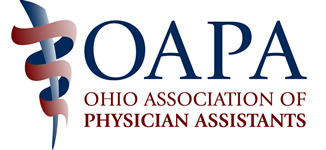Complete Story
11/29/2024
Op-Ed: Ryan McCune, PA-C, on "Military Service as a Path to PA Practice"
As long as I can remember I had always wanted to join the military. I constantly read books and watched documentaries about the military and never seriously considered doing anything else after high school. Once I graduated, I left for the Army with the goal of becoming a member of the 75th Ranger regiment. This was my first introduction to anything related to medicine.
During the Global War on Terror, the Ranger regiment set the standard for Tactical Combat Casualty Care. Compared to previous conflicts, the numbers of combat deaths from treatable causes were greatly reduced and the Ranger regiment was among the most successful units in treating wounded soldiers. We had highly trained medics who were incredibly knowledgeable and professional in their application of field medicine but each individual Ranger was also expected to know how to treat a wounded comrade, or even themselves, if needed. To that end, we underwent frequent and extensive training in casualty care. Although I was an infantryman, not a medic, this is where I was introduced to the field of medicine.
One of the driving forces in improving the basic medical knowledge and ability to treat wounded soldiers was our battalion PA. His name was Captain Fisher. He was my first introduction to the PA profession. In training he was responsible for overseeing and guiding the training of our medics and teaching them how to train non-medical professionals. During deployments he would go from camp to camp overseeing the medics and participating in combat operations. He was, and is, an impressive individual and seeing him work is what first prompted me to consider becoming a PA.
After four years and four deployments I was ready to leave the Army and start a different career. I knew that I wanted to pursue something that would be challenging and rewarding so I decided to pursue the PA profession. My experience in the Army didn’t just introduce me to the career but helped to build the confidence I needed to pursue such a challenging and competitive field. It has also helped to prepare me for practicing as a PA. The basic principle of the military is to get a group of individuals to operate as a team in pursuit of a common goal. This directly translates to practicing medicine. Practicing as a PA requires you to transition between leading and following. Whether you are collaborating with your supervising physician, getting reports from the patient’s nurses, or consulting a specialist team, you have to be able to effectively and efficiently communicate and know when to take charge and when to defer to another team member.
Another commonality between the two professions is the necessity of being able to make good decisions while under stress. Patients can often take a quick turn for the worse and the ability to keep a clear head and make good decisions can mean the difference between life and death for your patients. This is obviously the case in a combat situation as well, which is why military training emphasizes high stress situations so often in training.
I am proud and grateful for my time in the military for a number of reasons. One major reason is that it led me to my current career as a PA and has helped me to be successful in my profession.
Ryan McCune, PA-C, pictured with a friend he made during a deployment.

